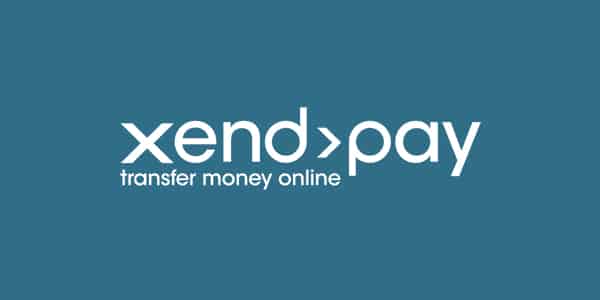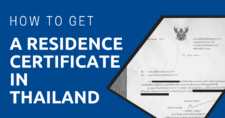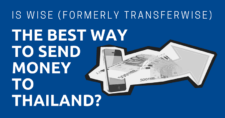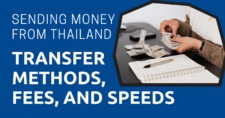
Sending money to Thailand can be a tricky matter.
Between international transfer fees and hidden fees in exchange rates, you face a lot of challenges when transferring money.
Aside from traditional forms of banking, you have other options that may yield you more Thai Baht for your buck.
Each offers its own benefits, from lower fees to easier payments.
By the end of this guide, you’ll know how to transfer money from your home country into Thailand while getting the best exchange rates and avoiding the largest transfer fees.
For more insider money guides in Thailand, check out ExpatDen Premium and get access to these exclusive articles:
- How to Get a Thai Credit Card without a Payroll Slip
- How to Get the Best Exchange Rate in Thailand That’s Better than SuperRich (With Free Delivery, Too)
- Alternative Credit Cards for with No Foreign Transaction Fees
- How to Avoid ATM Fees in Thailand
- and much more…
"*" indicates required fields
Disclaimer: This article may include links to products or services offered by ExpatDen’s partners, which give us commissions when you click on them. Although this may influence how they appear in the text, we only recommend solutions that we would use in your situation. Read more in our Advertising Disclosure.
Contents
- Key Takeaways
- What to Know Before Sending Money to Thailand
- Current Exchange Rates for Thailand
- Requirements to Send Money to Thailand
- Cheapest Ways to Send Money to Thailand
- How Long Does it Take to Send Money to Thailand?
- What’s the Fastest Way to Send Money to Thailand?
- How Much Does it Cost to Send Money to Thailand?
- Send Money from the United States to Thailand
- Send Money from Australia to Thailand
- Send Money from the United Kingdom to Thailand
- Send Money from Europe to Thailand
- Send Money from Malaysia to Thailand
- Send Money from Indonesia to Thailand
- Now, on to You
Key Takeaways
- The three most important things to consider when sending money to Thailand are transfer fees, exchange rates, and transfer speeds.
- Wise is usually the cheapest way to send under US$10,000 to Thailand. However, for transfers over US$10,000, a bank transfer might be cheaper.
- Since transfer fees and exchange rates often change, use Monito to compare the current rate and find out the cheapest money transfer service.
What to Know Before Sending Money to Thailand
When you send money to Thailand you should pay attention to:
- transfer fees
- exchange rates
- transfer speeds
Transfer Fees
No matter which method you use to send money to Thailand, you have to pay transfer fees. Transfer fees come in three forms:
- fixed amount fees
- percentage fees
- combination fees
These fees are decided by the banks that you transfer money from.
Normally, fixed fees are good if you want to transfer large amounts to Thailand, but they aren’t great if you only transfer a small amount. This is because no matter how much money you want to transfer to Thailand, you pay the same fee.
This is likely the most prominent part of the fees you’ll notice (though it’s usually not the biggest – more about that later). Many banks used the fixed fee method.
Secondly, you can pay transfer fees based on the percentage of the money you transfer. This happens when you use your home country credit card while in Thailand.
Sometimes you pay transfer fees in a combination of ways, such as when you use PayPal. With PayPal you pay a small fixed fee but a high percentage fee.
The transfer method you use should be suitable to the amount of money you send to Thailand.
If not, you end up paying expensive transfer fees for a small transfer.
Exchange Rates
The lion’s share of international transfers fees lies in hidden exchange rates.
This means besides the fees charged by your bank, PayPal, or other service providers, you have to pay another fee of up to 4 percent of the transfer amount.
Sometimes companies call it a hedging fee (e.g. in the fine print of credit cards and PayPal), other times they don’t mention it at all. But like airlines’ fuel surcharges, it’s just an extra fee you end up paying.
Even services that claim to not have a separate fee or allow you to set your own exchange fees often hide an extra fee in the exchange rate.
This difference can be bigger than any transfer fee shown on your receipt or quote.
One example: If you send British Pounds to Thailand, Kasikorn Bank keeps 3.4 percent of the entire transfer amount in the form of exchange rates on top of any fixed fees you pay to the bank.
This exchange rate fee is rarely mentioned anywhere outside of the fine print, and for larger amounts it can add up.
If you transfer THB100,000, that’s up to THB3,400 in hidden fees. For a THB2,000,000 condo purchase, that’s THB68,000 in transfer fees. That’s a lot for a fee your bank usually doesn’t consider worth pointing out.
When you use an online money transfer provider such as Wise, on the other hand, you don’t have to pay exchange rate fees. Instead, it only charges a transfer fee of 0.6 percent when you send money to Thailand.
Transfer Speeds
Transfer speeds from your home country into Thailand can take a matter of seconds or a few days, depending on whether you have a money transfer service account already set up.
Bank transfers from Hong Kong to Thailand often clear within seconds of the transfer. A money transfer service like Wise or Remitly can also take just a few seconds.
Cashing a check from America in Thailand can take up to six weeks to clear. On the other hand, a bank transfer takes about two to three business days.
Currency
Some foreign banks take up to a 4 percent cut of the entire transfer in the form of unfavorable exchange rates when you let them do the conversion from your home currency to Thai baht.
The solution to that is: Don’t. Ask your bank to send the amount in your home currency. Then ensure the money gets sent to a Bangkok Bank account (they have the best conversion rate for inbound transfers).
For amounts less than THB400,000, you’ll be better off using an online money transfer service due to the inbound fee charged by Bangkok Bank.
However, for very large transactions, the slightly better exchange rate provided by Bangkok Bank makes up for the fixed fee charged by them.
Current Exchange Rates for Thailand
Although every money transfer service provider will show you the current Thailand exchange rate you’re getting, it doesn’t mean that rate is necessarily the best one available.
So, it’s best to check the mid-market exchange rate for Thai Baht on XE.com and compare it with the one your money transfer service provider is giving you.
Keep in mind that these are mid-market rates. This means you’ll never get that rate. But your goal is to get as close to it as possible.
Requirements to Send Money to Thailand
In order to send money to Thailand, you need a bank to send money from and a Thai bank account to send money to. If you go the online route, you also need an online money transfer service like Wise. In this case, you need to provide your personal details and proof of ID, such as a passport, to set up an account.
As for the recipient of the transfer, you need the following details:
- recipient’s name
- recipient’s bank
- SWIFT/BIC code
- recipient’s bank account number
Cheapest Ways to Send Money to Thailand
In this section we’ll go through the cheapest ways to send money to Thailand, so that you can choose the best option for your needs.
Exchange Cash in Thailand
Exchanging cash in Thailand gets you the best exchange rates, and you can bring up to US$20,000 into the country without declaring it with Thai customs officers.
And if you avoid the airport kiosks and instead exchange your money for Thai Baht at SuperRich, you’ll get the best rates anywhere in Thailand.
Compared to sending money by bank transfer, going the cash route saves you US$80 for every US$20,000 you bring into Thailand.
Many people though, myself included, wouldn’t consider the stress of walking around with that much cash just to benefit from the US$80 in savings.
So, using an online service is the next best option.
Read more: Thai Baht: How to Get the Absolute Best Exchange Rates
Online Money Transfer Services
If you want to save the most on transfer fees and transfer times, use an online money transfer service.
These services make it easier and cheaper to send money to Thailand and have grown in popularity since I first published this guide.
To use an online money transfer service, you need to first open an account with the company and verify your identity by uploading your passport or identification card. The whole process usually takes three to five business days.
You also need to have a bank account in Thailand to receive money into.
Let’s take a look at three popular online money transfer services — Wise, Remitly, and XendPay.
Wise
Wise lets you send money to Thailand with no hidden fees. What you see upfront is what you pay. This is probably the most well-known of all of these providers.

Wise charges 0.5 percent to 2 percent of the transfer amount, depending on the source of currency.
This makes it useful for transfers of less than US$2,000 since the traditional route of a bank transfer would be more expensive.
For example, one of my employees transferred US$1,605.95 to Thailand using Wise. They charged him US$18 in transfer fees and gave him a mid-market exchange rate.
This means with an exchange rate of about 33 baht to the dollar (at the time of the transfer), he got THB52,402.35 in his Thai bank account.
Read more: Is Wise the Best Way to Send Money to Thailand?
Remitly
Remitly is a money transfer service that offers two ways to send money to Thailand: bank transfers or cash pickups.

If you use Remitly to transfer up to US$1,000 into a Thai bank account, there are two fees you need to pay:
- transfer fees
- exchange rate fees
Remitly has two transfer options, either express and economy.
For the express option, you get money within minutes and transfer fees run up to US$12.99.
On the other hand, the maximum fee you’ll pay for the economy option is US$3.99, but your transfer may take three to five business days.
Moreover, Remitly charges an exchange rate fee that it doesn’t disclose.
Still, it’s a good option for transferring money to Thailand, especially for first-time transfers because it waives transfer fees.
You can also use Remitly to schedule a cash pickup at one of the two following banks in Thailand:
- SiamCommercial Bank
- Kiatnakin Bank
Keep in mind the pickup fee for these banks may charge an additional fee of 0.25 percent of your transfer.
XendPay
**In 2023, XendPay went out of business. If you have money in a XendPay account and need to get it back, visit XendPay.com for contact details about legal representation.**
XendPay is a service provider similar to Wise. They advertise part of their fees as pay what you want for your first two transfers each year (I usually pick ‘0 EUR’).

Not to worry about them going out of business though: They do have a minor surcharge in the exchange rate, though for USD I’ve seen that as low as 0.25 percent of the transfer amount.
For Euros, the fees in the exchange rate tend to be a bit higher, though still only around 0.5 percent. Banks and other companies often quote much much higher hidden fees. This is the primary reason I usually go with XendPay.
Verification for XendPay requires a proof of identity and a proof of address. When I tested it, they verified my ID in less than two hours.
Another big advantage Xendpay offers over banks and many other providers is that they quote your exchange rate up front and lock it in place, allowing you to plan ahead and remove quite a bit of uncertainty.
However, one slight disadvantage of XendPay is that you can’t trust the fees it shows on its homepage. XendPay shows the total fee on its payment page instead, and is slightly more expensive than other service providers.
Others
Wise and Remitly aren’t your only options for sending money online. If you want an alternative, take a look at our review on WorldRemit. In essence though, most of these companies are the same.
There are always new ones popping up, though I haven’t seen any others that would make it worth switching. However, there is nothing preventing you from creating accounts with multiple companies, getting a quote, and then just using whichever offers the best rates.
International Bank Transfers
An international bank transfer is often the first thing people think of when it comes to sending money to Thailand. However, without at least some preparation, that can lose you up to 4 percent of the transaction amount without you even being told about it (and that’s in addition to the fees charged).
Given Thailand’s well-established banking system, you can send money to pretty much everyone. Plus, you yourself can open a Thai bank account with a national ID card or even with a passport with a tourist visa.
But bank transfers have higher fees and longer processing times than online money transfer services.
Unless you really need to make a bank transfer (e.g. because you need a “credit advance” to prove that funds come from outside the country for buying a condo, apply for certain visas, or sending more than THB400,000), it’s usually not the best option.
International bank transfer fees are difficult to calculate as well. Unlike online money transfer services, they don’t disclose it openly on their websites. You need to do extra work to find out the transfer fees and exchange rate fees for both sending and receiving banks.
Sending Banks
Each sending bank has its own payment structure.
Transfer fees are easy to find out. But exchange rate spreads are tougher to figure out. Many times bank tellers might not even know. This can be incredibly frustrating, especially since the bad exchange rates routinely add up to cost you 2 percent of the transfer amount.
If you transfer a lot of money, compare the bank’s exchange rate with the mid-market rate on XE.com before you sign or confirm a transfer.
Of course, if you send the payment in a foreign currency and have the Thai bank do the conversion, this doesn’t apply.
Receiving Banks
Not all Thai banks are equal when it comes to receiving foreign currency transactions. Like sending banks, each receiving bank has their own payment structure.
Unlike sending banks though, you can’t get advance quotes on exchange rates, and your transfer gets converted at whatever rates they use, whether you like it or not. The only way to get any information is to look at the differences in rates from past transfers received.
Based on that, out of all Thai banks, Bangkok Bank seems to offer the lowest fees and best exchange rates when receiving an international transfer in a foreign currency.
Paying Transfer Fees
You can ask banks what their transfer fees are. If transferring money to yourself, it makes sense to pick the option with lower fees. In most cases, this means the sender pays the fees.
Even if you specify that the receiver pays the fees, the sender still gets charged a fee – albeit a lower one.
Western Union
Western Union is one of the most well-known instant transfer services. In principle, you can use them to make cash available to anyone in the world in a matter of two minutes.
But the service comes at a price. Part of that price is visible on their website.
Depending on where you send instant transfers from, the fixed prices range anywhere from US$10 to US$50.
But the real cost is in exchange rates. Non-instant transfers from Western Union through banks start at 4 percent. For instant transfers you pay roughly 7.5 percent of the transfer amount.
If you need the money the same day, Western Union can make that happen at one of their 5,000 locations in Thailand, though even those have limited opening hours.
PayPal
**Since October 2022, expats in Thailand can’t set up new PayPal accounts anymore because the company’s Thailand headquarters now requires a Thai national ID card for account verification. You also can’t send money to Thailand through PayPal anymore. Please read this article to find out more information.**
PayPal offers a convenient way to send international payments as long as you don’t send significant amounts.

You can make payments for as little as US$0.50 and up to 1 percent per transfer if you choose Personal Payment.
This doesn’t include exchange fees though. PayPal adds 2.5 percent on exchange rates if you ever want to withdraw your US Dollar balance to a local Thai bank account.
This gets expensive quickly. But it works out to be cheaper than a wire transfer for anything less than US$1,000.
It’s still not as cheap as exchanging in cash or going through Wise or Remiyly. But it’s hard to beat the convenience if you already have an account and just need to send a few dollars.
In 2013, Thailand became the first country to ban Bitcoins. But since then, the Bank of Thailand has reversed its stance, warning against their use, but also stating it doesn’t consider Bitcoins to be a currency.
In theory, you can transfer cryptocurrencies without paying significant fees.
In practice, the savings are minuscule to other options because of the fees charged by cryptocurrency marketplaces.
Read more: Bitcoin in Thailand: Mine, Use, and Trade Cryptocurrencies
How Long Does it Take to Send Money to Thailand?
If you use an online transfer service like Wise to send money to Thailand, you usually get your money instantly if you’ve already set up an account and added the sending and receiving bank details.
For first-time users of Wise, it could take a few hours or days to get approved and make your first transfer.
With a traditional bank transfer, it could take days to complete the transfer, depending on how many banks are involved in the transfer process. This is because sometimes, a third or even fourth bank may be involved in an international transfer. This is usually the case when the sending or receiving bank isn’t well known or equipped for international transfers.
What’s the Fastest Way to Send Money to Thailand?
No matter what country you’re from, for the fastest money transfer into Thailand, use one of these online money services:
In most cases, you’ll get your money in minutes once you have an account.
How Much Does it Cost to Send Money to Thailand?
The cost of sending money to Thailand depends on which service you use and how much you transfer. On average, expect to pay around US$10 to US$20 for every US$1,000 you transfer into Thailand.
Send Money from the United States to Thailand
When sending money from the U.S. to Thailand, there are some limitations to be aware of. You’ll need to run through the checklist of fees and exchange rates to make sure you are getting the best deal.
U.S. Bank Transfers
Depending on what your situation requires, these types of transfers usually arrive at the recipient’s bank in three to five business days if sent by 5 PM EST.
As long as you have collected the required information, these steps should be fairly simple. Make sure to pay attention to the rates and fees that your bank charges.
As an example, at the time of this writing, the fee charged by Bank of America for an international money wire is US$45, so make sure the amount you send is significant.
This method is obviously not the best for small amounts or urgent situations, and it is costly.
U.S. Money Transfer Service Companies
Some of these services may not even require having a bank account at either end and, depending on the amount, some services can make transfers much faster and at significantly better rates.
Online research tools such as Monito are extremely helpful for searching and comparing various online money transfer service companies.
Below are a few of the top-rated companies and the steps you need to take to send money from the U.S. to Thailand.
Wise
Wise’s fees are very low and the exchange rates can often be as good as, or close to, the mid-market rate.
Another key benefit is that Wise is very transparent about what all the itemized fees and rates will be before sending money. Wise is also extremely fast and payout processing times usually only take a few minutes once you register with them.
You must register with Wise using a photo ID and your recipient will need to have a bank account and photo ID. This is an excellent choice for its speed of processing time and low rates. However, both the sender and recipient need bank accounts.
Send Money from Australia to Thailand
Depending on which country you transfer money into Thailand from Australia, you can save a lot on fees by using the right bank.
For example, the rates you get from sending money from Australia to Thailand are different from rates you get when sending money from America to Thailand, even if you use the same bank.
If you’re an Aussie, read our dedicated guide on sending money from Australia to Thailand.
Send Money from the United Kingdom to Thailand
When sending money from the United Kingdom to Thailand, you have many options. We discuss them in the following sections.
U.K. Bank Transfers
This method is very secure and the fees are usually more reasonable than they are in the U.S. However, transfer times can range from one to five banking days, so it might not be the best choice for urgent matters. The fees are different from bank to bank, too, but currently HSBC’s website indicates that the fee to transfer to Thailand is only GBP5.
Exchange rates, however, are shown to be 3.5 percent worse than mid-market rates.
U.K. Money Transfer Service Companies
These companies seem to provide the best options when it comes to overall speed, transfer fees, and exchange rates, but some do have limitations to consider.
Transfer Go
This company offers free transfer fees for new customers. After that, fees are tied to your preferred transfer speed. Thirty-minute transfers will cost you GBP2.99. Same-day transfers are a little cheaper at GBP1.99. And next-day transfers are even cheaper still at only GBP0.99.
The exchange rates are 1.78 percent higher than mid-market rates. This is a great option if you have more flexibility on the delivery time of the transfer but still don’t want to wait for more than a day or so.
Wise
Wise is a very popular money transfer company also available in the U.K. It has low fees and is very fast. Usually, it only takes a few minutes for money transfers. In the U.K., it offers both credit and debit card funding options, as well as bank transfers.
Exchange rates are also only 0.01 percent higher than mid-market rates. It requires registration, and both the sender and receiver need to have bank accounts in their respective countries to deliver or receive money.
Send Money from Europe to Thailand
There are many different methods for sending money from the E.U. into Thailand. It depends on the specific country. Bank transfers are the oldest and perhaps the most well-known methods, but again you need to pay close attention to the fees and rates.
E.U. Bank Transfers
Bank transfer to Thailand can take up to five business days, so it is by far the slowest method compared to money transfer service companies. Also, you can expect to pay additional service fees and exchange rates may not be very good. So, make sure to check how much is actually being received after fees and exchange rates.
However, for very large amounts of money, it’s still the most traditional and secure transfer method. Of course, this require the recipient to have a bank account. You then need to locate the SWIFT code of the Thai bank you’re sending to.
You can do this by going to the bank’s website or by Googling the bank’s name and “SWIFT code.” You also need the name and account number of the recipient. You also have to include the purpose of the transfer.
E.U. Money Transfer Service Companies
It’s recommended that you use a site like Monito to find the best service option for your country. Top-rated service companies are very fast and affordable and some can even make same-day payouts to the receiver.
Even when same-day service is not an option, most take only two to three days to process.
Remitly
Remitly covers many E.U. countries and offers very fast and affordable services. In most cases, money transfers are completed on the same day. You’ll pay no fees on your first transfer and even receive preferential exchange rates.
There are many options for funding your transfer as well, including bank transfers, direct bank payments, and credit and debit cards. Recipients can choose to have the funds delivered to their bank or go to a cash pickup location in Thailand. So, having a bank on the receiving end is not required.
Wise
Wise is a very popular option as well, due to its large global coverage, speed of delivery, and low fees. Exchange rates are also often very close to, or better than, the mid-market rates. You need to have a receiving bank set up in Thailand, but Wise does offer a wide range of funding options.
Depending on how you fund your transfer, Wise can have your payment delivered in minutes after you register.
Send Money from Malaysia to Thailand
Here we have outlined some of the best methods for sending money from Malaysia to Thailand.
Malaysian Bank Transfers
Bank transfers are the slowest, yet most popular and secure method for sending money from Malaysia to Thailand. If you don’t mind waiting three to five business days and you’re sending a mid to large amount of money, then it could be a good option.
However, be aware of the fees and exchange rates offered by the bank, because it can be expensive.
Malaysian Money Transfer Service Companies
There are a few online money transfer service company options for sending money from Thailand to Malaysia. Here are some of the best ones available in the market.
Wise
In Malaysia, Wise only offers the option to fund the payment via bank transfer, but it still has very low fees and exchange rates are closer to mid-market rates. Also, transfers are delivered on the same day to Thai bank accounts.
Instarem
This company also offers same-day transfers to Thai bank accounts and has slightly lower service fees than Wise. However, exchange rates are typically 0.17 percent worse than mid-market rates.
You can pay by direct bank payments or bank transfers, but you need a Thai bank account.
Send Money from Indonesia to Thailand
Most banks in Indonesia don’t send or receive money unless you have a special international currency send/receive account. Options for sending money from Indonesia to Thailand are more limited, but there are still options to receive money very quickly.
Indonesian Money Transfer Service Companies
The only easy option for sending money from Indonesia to Thailand is by using a money transfer service company. The fees are low and the exchange rates are as good, or better than, mid-market rates.
Wise
Once again, Wise comes out on top as the best option. Transfers are delivered in a matter of minutes and the fees are very low (transferring IDR2,065,850 costs only IDR42,707). To fund your transfers, you have to use a bank transfer, and the recipient needs a bank account, too.
Now, on to You
When it comes to sending money to Thailand, most people still stick with traditional bank transfers. If they compared the ”real” exchange rates on XE.com with what their bank actually uses, that would lead to a rude awakening.
Online money transfer companies can save you a lot of money, not only because they charge fewer transfer fees but they give favorable exchange rates as well.
When it comes to sending money to Thailand, I personally use Wise. I always check Monito to make sure that no other companies are offering better rates on any given day.
When it comes to sending money from Thailand, I normally use an international wire transfer. While it can be a hassle to do it the first time, I’m satisfied with the rates and experience.










Excellent article. It addressed one of my questions regarding whether or not to do the currency conversion before sending from your bank to a Thai bank. Now I know to send in in AUD from my Australian bank and have it converted by the Thai Ban preferably Bangkok Bank.
My other question is:
Wise etc are great and I have used them to send money to Germany and Thailand. However because of how they are setup the money goes into a Thai bank account as a local transfer from within Thailand and not and FET (Financial Electronic Transfer) even if you nominate a bank like Bangkok Bank it may still get cleared by another Thai Bank before arriving In Bangkok Bank. This is problematic for anyone on a non immigrant O or OA visa relying on the monthly transfer minimum from a foreign source to meet the visa requirements. Do you know of any way around this or if other transfer services can transfer as an FET so that it appears as a foreign transfer on your Thai Bank passbook?
If not possible then the choices are to move 400000 or 800000 baht into a Thai Bank but you still have the problem of ensuring it comes in as an FET.
Thank you
During your transfer with Wise, you will need to select a reason of transfer as “funds for long-term stay in Thailand”. It’s the last option on the reason dropdown menu.
Then, your fund should appear as foreign fund transfer which should be accepted by the immigration officer without a question.
I am currently in the US looking to move to Thailand, can I just open up a JP Morgan Chase account in the US, deposit funds, and then open up a Bangkok bank when I arrive and write a check from Chase bank to Bangkok bank to open an account?
Actually let me change that to Citibank. I looked at JP Morgan Chase in Bangkok and they don’t seem to have any consumer services. So I would use Citibank.
The problem isn’t so much the fees. I would be quite happy paying a bit more fees, if a transfer didn’t include “KYC” practices. KYC doesn’t benefit the consumer, it only decreases your privacy and increases the possiblity of identity theft. And be honest: will it reduce criminal activity? no, because criminals won’t use these services anyway.
So if anyone has more options on exchanges that won’t request copies of passports that would be great!
… can’t wait for crypto to become the world standard.
Today Western Union are giving me 6033 baht for £150 no fees bank to bank (2-3 business days) and at the same time Xe.com live market report £150 exchanges to 6051 baht. Indeed if I use xe own send system I get just 5,947 THB. That’s make live rates just about 0.33% better than the WU exchange rate. It’s not instant, it’s not cash but seems pretty good value to me.
I used TransferWise when I brought over money to buy a car here in Thailand. Unfortunately, it doesn’t look like they will be of much help now that I have bought a house and need to bring over a substantial amount of money. Most of your advice was for relatively small transactions. After reading the article I am still unsure how to proceed so any additional advice would be extremely appreciated. It may be possible for me to make four separate transfers through Transferwise but I wouldn’t expect that to be the best method.
Hi Ed. Thanks for the feedback. We are going to work on a guide for sending larger amounts of money (for buying houses/condos/etc.) soon.
Thanks for getting back to me. I think the new guide will be very useful. Too bad I have a short deadline or else I will lose my deposit so it won’t be a help to me. When it comes out I will read to see if I guessed correctly.
Thanks for all the useful information you provide.
You’re welcome 🙂
How does this compare to using free ATM from Schwab Bank High Yield Investor Checking® –They give you the Visa and repay the international ATM fees users rack up while overseas?
Hi Greg. TD Bank does the same thing for me. It sounds like a great deal. But banks will take a percentage of the exchange rate. So although we get our ATM fees reimbursed, we don’t get the best exchange rates.
Transfermate. com much better rates and fixed 10€ fee (I was with TransferWise but after some comparisons far prefer TransferMate (big international company widely regulated worldwide… HQ in Ireland)
Great information! I just came across “Xoom” from PayPal very recently. You might want to give that a look. I’d be interested in hearing what you think.
How does the collect works when sending money through paypal? do you go to any bank or can you send it as deposit to an specific account?
It would go from PayPal to PayPal account. The recipient would then have to withdraw the funds from PayPal to their local bank account.
there is not one way to send money between countries. there are 500. In 2016 only., + 100 operators have been created. I think it might be wise to take a look at a comparison service such as moneytis.com
I’m working on the money transfer comparison project and it is interesting to analyze the results. Indeed, there are many explanations for fragmentation in this market:
1/ the money transfer provider which is the cheapest depends on the amount you send
2/ the money transfer provider which is the cheapest depends on the country you transfer money from
3/ the money transfer provider which is the cheapest depends on the country you send money to
4/ the cheapest and fastest depend also on the payment option you choose
5/ the cheapest and fastest depend on the reception option you choose
6/ the prices change every 30 minutes
I have a question about packing cash out — why is everyone worried about declaring things to customs? If I want to take $15,000 US with me to Thailand and have to declare this, what’s the problem? Is it a huge airport hassle? Will I be questioned extensively? I don’t understand this piece. Thanks for writing this very interesting article.
In theory it’s not illegal to bring that much and you might only need to offer proof that the funds were obtained in a legal manner. Say you are taking $15,000 to Thailand to buy a car and you can show you could have set that aside from your salary, there shouldn’t be any issues. As always though, the best way to deal with Thai customs is to handle things in a way that you don’t have to deal with them altogether. Main reason being that how things actually play out can sometimes be hard to predict.
I have a Citibank account in a few countries. The transfer is instant and there is no fee. The spread on the exchange rate was good last time I checked but I’m not sure what it is like now.
I have used transferwise and it is one of the cheapest and fastest solutions I found. I tried to open an account asking to several banks but all of them required a work permit. Are you sure passport with a tourist visa is enough?
How long did the TransferWise transaction take for you?
Opening a bank account depends on the branch. The guaranteed one to work is the Bangkok Bank main branch on Silom Road. They even have information on their website that specifically states that only a tourist visa is required. You could always print out the website and then take the printout to the branch.
In some places (e.g. Pattaya), it’s even not unheard of that banks open branches for people on 30-day entry stamps (and without a ‘proper’ visa).
Thank you for the information. I can’t remember how long it took cos it was 3 months ago. I will check and I let you know.
Thank you for the information. It took 6 days (they estimated 5 days). The exchange rate was almost the same of the official one, the fee was around 11euro on 600euro.
as mentioned Bangkok Bank works great and in worst case you can let some one stay garant for you. If the Thai persons wants to sign a paper that he/she is garant that you money is nog illegal than you probably can also open that account.